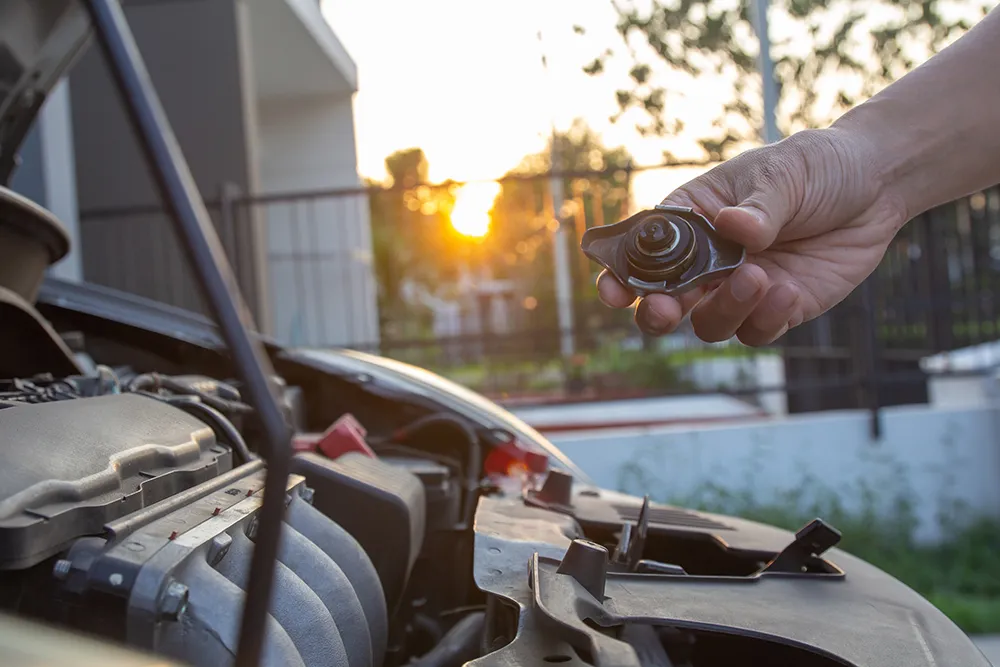Your car’s radiator is the unsung hero of your engine’s cooling system. Without it, your vehicle would quickly overheat. The radiator aims to keep your coolant flowing and your engine running at a safe temperature. However, despite its importance, the radiator is prone to leaks and other malfunctions. We will discuss everything you need to know about radiator leaks, including the symptoms, causes, and solutions.
Symptoms of a Radiator Leak
You may not be able to see your radiator, but you can spot signs of a radiator leak. When the radiator is leaking, the engine may start to overheat. You may also notice coolant leaking underneath your vehicle and on the ground. If your car’s temperature gauge indicates the engine is getting too hot, it’s time to look closer at the radiator.
Causes of a Radiator Leak
Several factors can cause radiator leaks. Corrosion is one of the most common causes when the metal in the radiator begins to degrade due to exposure to water and oxygen. Other causes could be a damaged or worn-out hose, a cracked radiator, or a malfunctioning thermostat. Any of these issues can lead to a loss of coolant, which can cause your engine to overheat, resulting in severe engine damage.
Solutions for a Radiator Leak
The solution to a radiator leak varies depending on the cause of the issue. If the problem is identified early, a mechanic may be able to fix the radiator with a sealant. In other cases, a patch may be required. However, if the radiator is severely damaged, it may need to be replaced. Regular radiator maintenance can also extend the life of the radiator and prevent leaks in the first place.
Tips to Maintain Your Radiator
Prevention is always better than cure. To avoid radiator issues, you should take steps to maintain your radiator. One crucial step is to have your coolant changed regularly, as old or dirty coolant can cause corrosion to your engine parts. You should also check the coolant level periodically and look for signs of rust or corrosion in the coolant tank. Other maintenance tips include checking the hoses for cracks and leaks and ensuring your thermostat works correctly.
Awareness of radiator leaks and their symptoms is essential for a car owner. A malfunctioning radiator can lead to engine problems, leaving your vehicle unusable and costing you many repairs. Regular maintenance and inspections of your car’s radiator can prevent potential issues from becoming more significant. If you suspect your radiator needs attention, schedule an appointment with a trusted mechanic. Proper care ensures the longevity of your radiator and engine, allowing for a safe and smooth drive.


